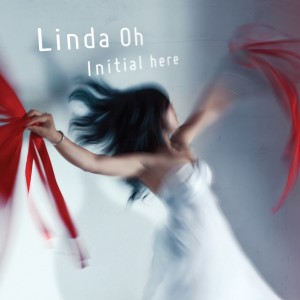I'm what you'd call a music enthusiast. Not one of those obsessive people, but definitely fanatical about it. This blog began as a forum for whatever I am listening to throughout the day but I'm also trying to include full-blown CD reviews too.
Tuesday, July 24, 2012
CD Review: Linda Oh - Initial Here
Linda Oh
Initial Here
(Greenleaf Music) www.greenleafmusic.com
Bassist Linda Oh's life has been one of extensive journeys. She was born in Malaysia to Chinese parents, who moved their family to Australia when young Linda was three years old. After spending her teenage years playing in rock bands, she headed to New York to study jazz and eventually appeared with artists like Dave Douglas, JD Allen and Ambrose Akinmusire. The latter played on Oh's 2009 debut Entry.
Initial Here is inspired by the way the journeys have impacted her, but her writing reflects this pensively rather than trying to put across a concept album or by trying go to a different world with each song. Oh alternates between acoustic and electric basses (with pianist Fabian Almazan doing the same with acoustic and electric pianos). She has a tone on the upright that feels immediately engaging and authoritative, especially on "Mr. M" which pays homage to Charles Mingus both in its solo and in a melody that recalls his more reflective writing.
"Thicker than Water" brings in Oh's other instrument, the bassoon, which duets with the bowed bass behind vocalist Jen Shyu who sings in both Mandarin Chinese and English. With a melody as close to opera as jazz, this track's lyrics address Oh's mother and female forebears. While it includes questionable phrases like "satiate your soul" the overall message and Shyu's strong delivery lend a lot of weight to the message.
Throughout the album Oh shows a knack for turning unusual rhythmic features into strong grooves. "Ultimate Persona" is based on an Indian polyrhythm which keeps changing slightly over four (or maybe eight) repetitions. Drummer Rudy Royston drives this, as well as "Deeper than Happy" which is full of stop-start figures. Along with a strong reading of Duke Ellington's "Come Sunday," the quartet pulls off a brilliant medley of West Side Story's "Something Coming" - playing it in an urgent 4/4 clip - that segues in the climax into Igor Stravinsky's "Les Cinq Doigts," a piece that sounds very similar melodically.
The closing "Deeper Than Sad" ends things on a melancholy note which comes as something of a surprise considering the way the rest of the album seemed to be more on the upswing. But the quartet's performance, which follows a dirge-y figure and builds in dynamics to include some melodica bursts and some haunting backing vocals, ends up feeling uplifting in its own way. There are a lot of ideas moving around on this album, but none of the tracks feel busy.

This comment has been removed by a blog administrator.
ReplyDelete